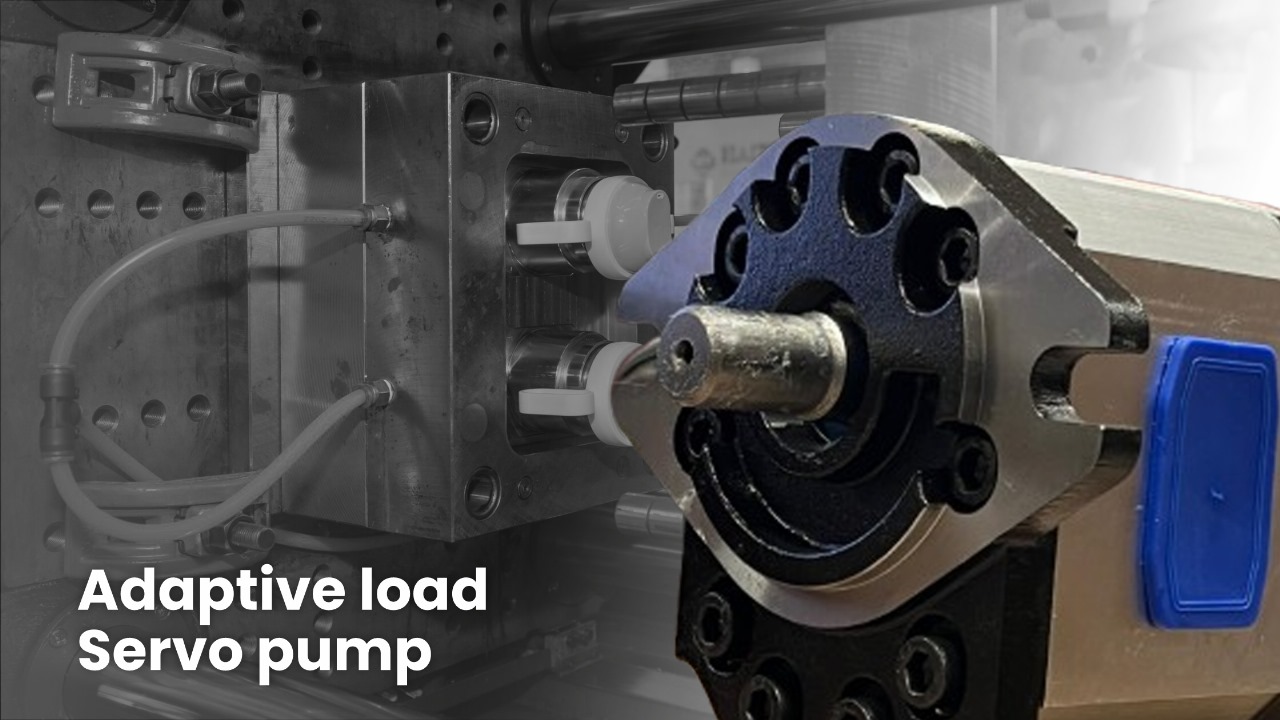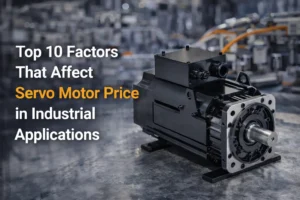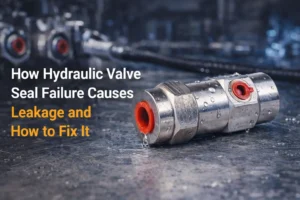A modern hydraulic system has changed the way things are done, and this is attributed to adaptive load servo pump technology. These precision units can automatically respond to the changing load requirements yet have high efficiency unlike the traditional pumps. The fact that a servo pump can lead to quick reversal system of hydraulics functions makes sure that the performance is smooth even in case of sudden changes of direction. This flexibility has seen servo pumps become very popular in industries that are in need of speed, energy conservation, and accuracy.
The difference in servo pumps
Servo pumps are a combination of variable speed servo pump technology and sophisticated servo pump feedback control. This enables the system to adjust the motor speed and the torque in real-time according to the demand.
Key Characteristics:
- Load flexibility – even flow of changing hydraulic loads.
- Operation of energy saving servo pumps – less consumption of power through operation when necessary.
- High accuracy – Provides constant flow and pressure.
- Fast reverses – Does not sacrifice stability in making changes in direction.
Application of Adaptive Load Servo Pumps in Quick Reversals
Quick reversal hydraulic systems play an important role in such industries as injection molding, machine tools, and die-casting. A load servo pump is an adaptive load servo pump that allows the machine to change direction quickly and yet avoid pressure spikes.
Benefits include:
- Reduced cycle time
- Extended equipment life
- Hydraulic performance consistency.
- Improved motion synchronization.
Energy Saving Features of Servo Pumps
Among the greatest benefits of a servo pump in India, it is possible to distinguish the possibility to save energy expenses. Conventional hydraulic systems tend to be operating continuously, whereas servo pumps react to the necessary speed and pressure only.
- Variable speed servo pump consumes up to 60% energy.
- And less heat production will reduce cooling.
- Reduced maintenance costs are achieved by longer component life.
Here are some model codes for Servo Pumps
VPS – Servo Vane Pump – Model codes:
VPS-1-20–PR15R/1XT V, VPS-1-25–PR15R/1XT V, VPS-1-32–PR15R/1XT V, VPS-1-40–PR15R/1XT V, VPS-1-50–PR15R/1XT V, VPS-1-64–PR15R/1XT V, VPS-2-100–PR15R/1XT V, VPS-2-110–PR15R/1XT V, VPS-2-125–PR15R/1XT V, VPS-2-145–PR15R/1XT V, VPS-2-160–PR15R/1XT V, VPS-2-70–PR15R/1XT V, VPS-2-80–PR15R/1XT V, VPS-2-90–PR15R/1XT V, VPS-3-160–PR15R/1XT V, VPS-3-180–PR15R/1XT V, VPS-3-200–PR15R/1XT V, VPS1-16-PR14-R/1XT V
TGR Series – Silent Gear Pump – Model codes:
THM GR472C025CCFSAEBACODXF2555, THM GR472C032CCFSAEBACODXF2555, THM GR472C040CCFSAEBACODXF2555, THM GR472C045CCFSAEBACODXF2555, THM GR472C055CCFSAEBACODXF2555, THM GR552C050CCFSAEBACOEDX, THM GR552C063CCFSAEBACOEDX, THM GR552C075CCFSAEBACOEDX
IGP05 Series – Internal gear pump – Model codes:
THM IGP(H)-33-160-160-02T/R-PVS, THM IGP(H)2-32-02T/R-PVS, THM IGP(H)2-32-02T/R-PVS-L-36, THM IGP(H)3-145-02T/R-PVS-(S10), THM IGP1-10-01T/R-VPC, THM IGP1-13-01T/R-VPC, THM IGP1-13-02T/R-PVS (T013010123), THM IGP1-16-01T/R-VPC, THM IGP1-16-02T/R-PVS (T016010133), THM IGP2-63-01T/R-VPC-L-36, THM IGP2-63-01T/R-VPC-S10, THM IGP2-63-02T/R-PVS, THM IGP2-63-02T/R-VPC-S10, THM IGP3-100-01T/R-VPC, THM IGP3-100-02T/R-PVS, THM IGP3-125-01T/R-VPC, THM IGP3-125-02T/R-PVS (T012501105), THM IGP3-160-01T/R-VPC, THM IGP3-160-02T/R-PVS, THM IGP3-80-01T/R-VPC, THM IGP3-80-02T/R-PVS-S10
Applications of Precision Servo Pump Systems
Accurate servo pump systems find application in different industries where accuracy and rapid adaptability is needed.
Common Applications:
- Injection Molding Machines – Short cycle time and reversals are under control.
- Press Machines- Smooth running under variable loads.
- Machine Tools – Accurate control of cutting, milling and shaping.
- Die Casting Equipment – Consistent pressure throughout repetitive cycles.
The beneficial effect of Servo Pump Feedback Control
The feedback control makes the pump keep track of the load demand. Pressure and flow sensors are used and give signals to the drive that changes the speed of the motor immediately.
This process results in:
- Stable system performance
- Faster response time
- Lower energy use
- Enhanced safety in conditions of fluctuation.
Tips for Choosing the Right Adaptive Load Servo Pump
In choosing a servo pump, one looks at:
- System requirements (flow, pressure, and reversal speed).
- Energy efficiency rating
- Interrelations with the already existing hydraulic system.
- Industrial specification of servo pumps.
- Reliable suppliers such as THM Huade.
Final Thoughts on Load Adaptability and Quick Reversals
With adaptive load servo pumps, hydraulic efficiency and reliability has changed. These pumps are precise and durable, which is a guarantee of energy saving or reversal hydraulic systems that are quick. In the case of business that wants to experience high end servo pumps in India, THM Huade will provide world level solutions based on the automation, manufacturing and heavy duty sector.
Call now THM Huade today, and find out how to enjoy the adaptive load servo pump to use in your hydraulic system applications.
FAQs on Servo Pumps
- How do servo pumps adjust to load changes?
The feedback control of the servo pumps allows monitoring system demand and adjusting the speed and torque of the motor to maintain constant pressure and flow.
- Why are quick reversals needed in servo pumps?
The fast reverses shorten the cycle-time and enhance the productivity of the machine particularly in injection molding as well as press machines.
- How do servo pumps save energy?
A variable speed servo pump uses less power and generates less heat by only operating at the necessary speed and pressure.
- What helps servo pumps stay accurate under heavy loads?
Exacting sensors and feedback mechanisms allow servo pumps to remain in line and steady even in the variable load conditions.
- Do servo pumps need sensors for quick response?
Admittedly sensors will be needed in real-time monitoring, the pump should respond accurately in real-time to load variations.
- How do servo pumps improve system efficiency?
They eliminate energy waste, minimize heat, increase component life and provide easy operation at variable loads.



